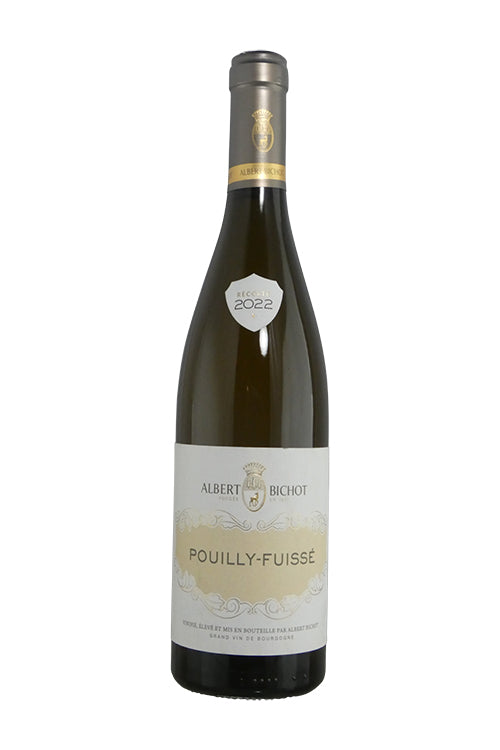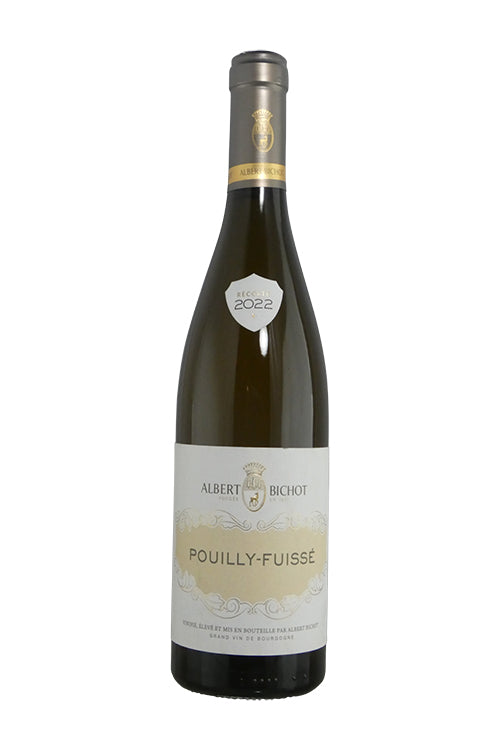1
/
of
1
Bichot Pouilly-Fuisse - 2022 (750ml)
Bichot Pouilly-Fuisse - 2022 (750ml)
Regular price
$39.99
Sale price
$39.99
Regular price
$44.99
Unit price
/
per
Juicy, firm and fluid, showing peach, melon and earth flavors, with hints of citrus. Offers a tactile sensation on the moderate finish. Drink now through 2028.
Availability:
16 In Stock
$25 Shipping on Orders +$299
Couldn't load pickup availability
Share :

- varietal
- Region
- Reviews
Its adaptability to different soils and climates, and malleability in the wine room make Chardonnay one of the most popular and ubiquitous grapes. Responsible for some of the world’s most thrilling white wines wines including Champagne, it is in its homeland of Burgundy with villages such as Chablis, Meursault and Puligny-Montrachet that producers craft arguably some of the world’s finest wines. Chardonnay is also synonymous with California, where it can display riper, tropical fruit flavors, rather than the more restrained stone fruit and steely, mineral qualities often associated with its Old World and cool climate counterparts. While there are terrific fresh and vibrant Chardonnays made solely using stainless steel, the grape also knits terrifically well with oak, lending greater depth and weight in the form of a nutty, toasty and somtimes buttery component.
Two hundred miles south east of Paris lies the famous and historic wine region, known in French as Bourgogne. The Cote d'Or, the heartland of the region, consists of two distinct sub-regions split on either side of the town of Beaune.The Côte de Nuits to the north, includes the famous villages of Vosne-Romanee, Gevrey-Chambertin, and Nuits-Saint-Georges and are known primarily for making red wine from Pinot Noir.Although The Côte de Beaune to the south still makes some magnificent reds (see Volnay and Pommard), white wine made from Chardonnay is the main focus. The most famous villages are Puligny-Montrachet and Meursault. Burgundy has three other important regions. The village of Chablis (exclusively Chardonnay) encompassing the region's most northerly vineyards. The Côte Chalonnaise and Mâconnais to south are quantitatively speaking more important. Agriculture is more diverse with a significant portion of the land devoted to livestock and arable farming.


